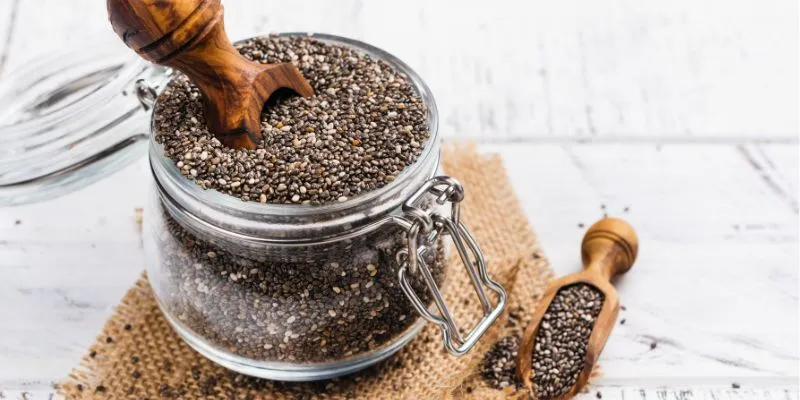Vitamins And Supplements To Avoid Before Surgery
Preparing for surgery involves more than scheduling the date and following pre-operative guidelines. What you consume, including vitamins and supplements, can significantly impact the outcome of your operation. Many assume that supplements are always safe because they’re natural or over-the- counter. However, some can interfere with anesthesia, increase bleeding, or slow healing.
Your safety and recovery depend on knowing which supplements to avoid before surgery. While some vitamins and herbal medicines may seem harmless, they could complicate your treatment. Understanding what to stop taking and when can prepare your body for a smoother experience. This article outlines the vitamins and supplements to avoid, explains the risks associated with them, and offers advice for a safe procedure.

Which Vitamins and Supplements Should You Avoid Before Surgery?
Below are the vitamins and supplements to avoid before surgery to ensure a safer procedure and smoother recovery.
Blood-Thinning Supplements
Certain supplements are known to thin the blood, which can cause major problems during surgery. Blood-thinning medications make it more difficult for blood to clot, increasing the risk of excessive bleeding. High doses of vitamin E, for example, can prolong bleeding. Fish oil, rich in omega-3 fatty acids, is another popular supplement that can affect blood coagulation. Garlic, often praised for its health benefits, can also increase bleeding tendencies. Doctors typically recommend stopping these supplements at least two weeks before surgery to allow the body to restore its normal blood- clotting ability. Inform your surgeon about any blood-thinning supplements you take. Transparency ensures a safer surgical experience with minimal bleeding issues and allows your medical team to take the necessary precautions.
Supplements That Affect Anesthesia
Anesthesia is crucial for surgery, and some supplements can reduce its effectiveness. Certain natural supplements and herbal treatments may have adverse effects, including abnormal heart rhythms or drowsiness. St. John’s Wort, for instance, can decrease the potency of anesthetic drugs, posing problems during surgery. Valerian root, commonly used for relaxation, might enhance sedation, making anesthesia unpredictable. Ginseng is another risky herb that can cause unexpected blood sugar fluctuations, complicating anesthetic management. Doctors recommend stopping these supplements at least two weeks before surgery to ensure your anesthesia plan works as intended and to avoid harmful interactions. Clearly communicate any herbal or natural supplements you use with your healthcare team so they can adjust your medication plan and ensure your safety during the procedure.
Immune-Boosting Supplements
While immune-boosting supplements are often associated with better health, they can cause complications during surgery. Some supplements have unexpected effects on the immune system that can delay recovery. For example, echinacea, a common herb used to fight colds, may cause allergic reactions or inflammation after surgery. Astragalus, another immune-boosting herb, can overstimulate the immune system, complicating the healing process. Even basic minerals like zinc, when consumed in large amounts, can interfere with proper wound healing. Doctors usually advise stopping these supplements before surgery to ensure optimal recovery. A well-balanced diet and adequate hydration are better ways to support your immune system. Always consult your doctor about any supplements you take; they can provide safer alternatives and ensure a smooth surgical experience.

Weight Loss Supplements
Weight loss supplements can pose significant risks during surgery due to their stimulants and unknown ingredients. Many of these products are marketed as appetite suppressants or fat burners but contain harmful substances. Caffeine- based pills, for instance, can increase heart rate, complicating anesthesia management. Natural ingredients like green tea extract can affect blood clotting at high doses. Doctors advise discontinuing weight loss supplements well before surgery to reduce the risk of complications and allow your body to stabilize. Always consult your doctor about safe methods for managing your weight, especially if you have an upcoming surgery. Following their guidance ensures your body is prepared for the procedure.
Vitamins in Excessive Doses
Although essential for health, excessive vitamin intake can be harmful, especially before surgery. High doses of certain vitamins can cause complications. For example, too much vitamin A can harm the liver, impairing the body’s ability to metabolize anesthesia. Similarly, even moderate doses of vitamin C can interfere with blood clotting, increasing bleeding risk. Overdosing on vitamin D can lead to calcium imbalances, compromising surgical outcomes. Follow your doctor’s recommendations on standard vitamin dosages to avoid such issues. Before surgery, avoid megadoses or self-prescribed vitamins. Discuss your vitamin intake with your surgeon to ensure your levels are within a safe range. This approach ensures a better surgical experience and minimizes risks.
Supplements with Unknown Risks
Even though some supplements are popular, their safety during surgery is not well-documented. These products often carry unpredictable risks that can jeopardize your health. Kava, used for relaxation, can increase sedation levels and impair liver function. Ginkgo biloba, often taken for memory enhancement, can exacerbate bleeding tendencies. To stay safe, avoid supplements with unknown or poorly studied effects before surgery. Inform your doctor about any supplements you take, even those that seem harmless. Better outcomes result when your surgical team is fully informed and prepared to manage potential risks.
Conclusion:
Preparing for surgery involves more than just timing and following instructions; it requires managing your supplement intake. While herbs and vitamins may seem harmless, some can interfere with anesthesia, increase bleeding risk, or slow recovery. By discontinuing weight loss, immune- boosting, blood-thinning supplements and avoiding excessive vitamin doses or untested compounds, you enhance your safety. Open communication with your medical team is crucial for identifying risks and adjusting your surgical plan. Always consult your doctor about any supplements you take. Proper preparation ensures a better operation and recovery, allowing your body to heal effectively and reducing complications to improve overall outcomes.











